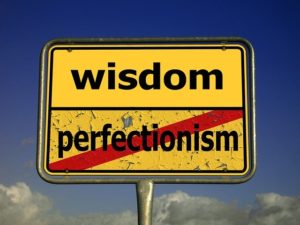
What can we control during the COVID-19 pandemic?
Wow. Just wow. COVID-19. Just saying it, speaking it, seeing it written, it strikes fear in many of us, anxiety in some, terror in others, grief in still others, or even a combination of more than one emotion in many of us. Sometimes there are no words to make things better, sometimes there isn’t anything I can say, or think to say that will make life seem like it’s a little bit easier, a little bit brighter. We are all having to come to terms with COVID-19 and what is going on around the globe right now. We are in a perpetual state of living in the unknown. This is something many of us humans go about attempting to avoid. We try to control, or predict, the world around us to the best of our abilities. Now, this doesn’t make it so, but it does give us the illusion that we have control at least in our little corner of the world.
Today I want to share some ways to help us lessen the trauma we are all going through during this COVID-19 pandemic. I was watching a video the other day by Bessel van der Kolk (2020), a leading trauma expert in our world right now, where he shared several tips about how to lessen the trauma we are experiencing with COVID-19 and I’d like to pass along some of that information to you.
First things first, COVID-19 makes it apparent that we hardly control anything, other than ourselves; and even that is sometimes. Okay, now, that that piece is out of the way; what can we control?
- We can control if we keep moving by exercising, going for a walk, using an at-home workout app, some places even have virtual workout classes so we can get some socializing in too!
- We can control if we meditate or pray. There are many apps for meditation or prayer. I like the Calm app for meditation (there are a couple of free meditations), but there are other apps out there too. Find what works for you!

- We can control if we attempt to have a routine, but a routine with balance! Routine is great for kids too. Place a routine somewhere that everyone can see it. I did this for my kiddos who can’t read yet and added pictures with the words, so they can look at it and know what to expect. Obviously this COVID-19 has turned our worlds upside down, so having a sense of routine can help us have a little bit of predictability, while knowing it doesn’t have to go perfectly because nothing in this world is perfect. Even our day at work, if planned, doesn’t go completely as planned every day. Sometimes things will pop up during our workday, like an emergency meeting, or someone popping into your office to chat, and the same thing happens when we work from home, just in different ways. It’s okay if we end up distracted for 15 minutes by doing dishes, or taking a 15 minute walk, we do those things naturally at work, and just because we are at home now (for most of us) doesn’t mean we can’t take breaks.

- We can control if we have time to play together as a family, while also remembering to take time for ourselves. Both are equally important even when we aren’t in a pandemic. We can play family board games, cards, play outside in our yards, etc. If you aren’t with loved ones, or are quarantined, you can still meet virtually. What a great time to have electronics at our disposal! There are even ways we can play games together or watch TV together.
- We can control if we notice our own feelings and allow those feelings to move through us. We cannot control our loved ones and their feelings, as much as we may want to right now! Often this noticing happens when we are having time to ourselves.
- We can control reminding ourselves that this is a season in our lives. We will eventually be back together in person again. We just don’t know when yet. Knowing that this season has an end is helpful because it tells our brain that there is an end and something else to look forward to. It’s like when we anticipate spring weather by the time March rolls around for us here in Indiana.

- We can control if we reach out when we are struggling. Please reach out to someone sooner rather than later. If you are struggling, call a therapist, if needed, many are offering secure virtual sessions or phone sessions as we go through this season. And if you are in an unsafe situation, you can call the National Domestic Violence Hotline at 1-800-799-7233, the National Suicide Prevention Hotline at 1-800-273-8255, or text the Crisis Text Line at 741741 (all the above resources are available 24/7).
Finally, try to offer yourself some grace and compassion as we all grapple with the pandemic of COVID-19. It is important to know that if you are unable to do these things above, that’s okay too. Please try not to be too hard on yourself. In times like these, no one really knows what is best and we are all doing the best we can to survive moment to moment.
Thank you for reading!
Reference:
van der Kolk, Bessel. (2020). Steering Ourselves and Our Clients Through New & Developing Traumas. [Video File]. Retrieved from: https://catalog.pesi.com/sq/bh_001345_body_keeps_the_score_freeevent_email_sq-117963?utm_medium=email&utm_source=sp&utm_campaign=033120_bh_c_rt_BesselFREE_LiveWebcast_1pm_throttled&spMailingID=32093977&spUserID=MTY4OTgzMDMxMjYyS0&spJobID=1664874961&spReportId=MTY2NDg3NDk2MQS2





